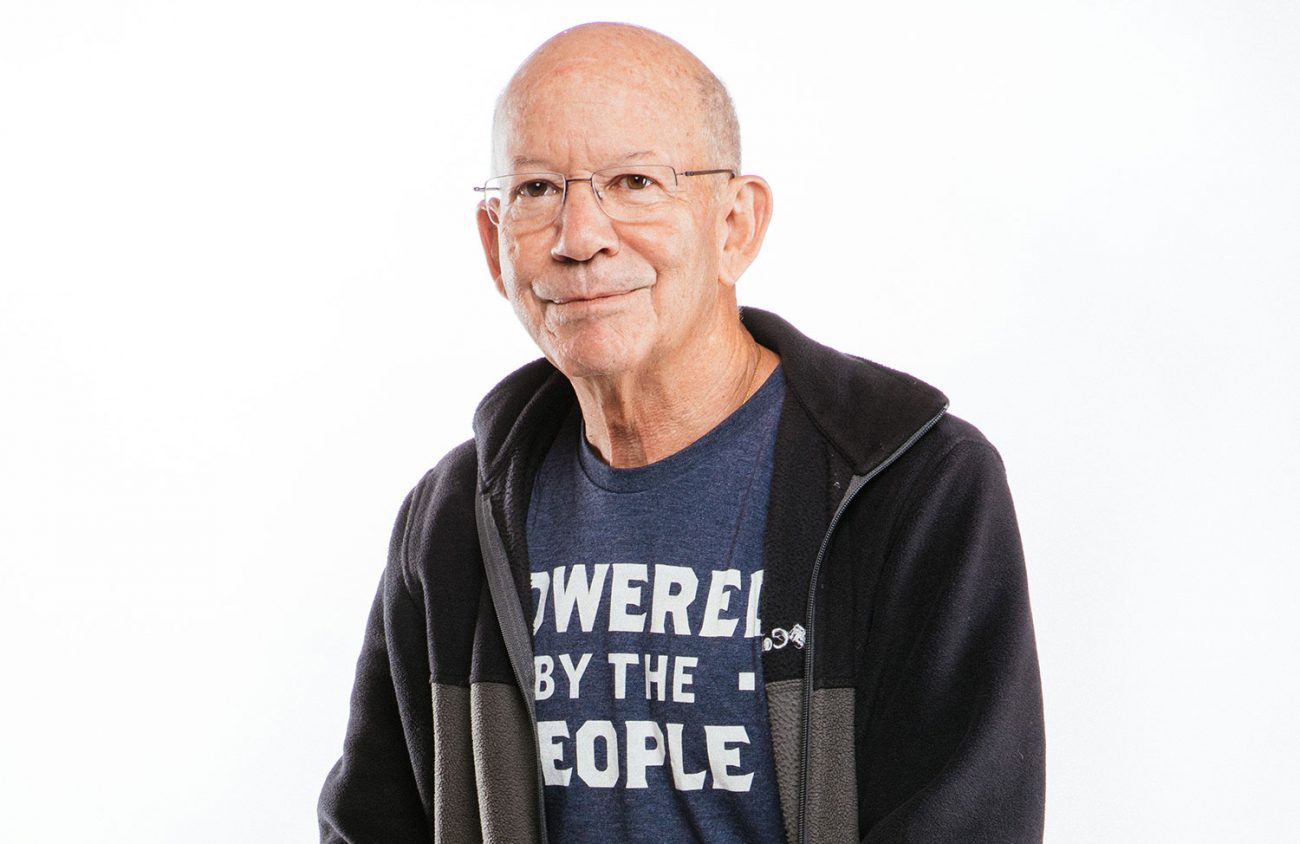With support from the Biden administration, Rep. Peter DeFazio says Congress is moving forward on some important pieces of legislation — tackling green infrastructure, COVID-19 relief, voting rights and equality.
Though some of these bills were passed in the House in the last congressional session, DeFazio says it was difficult to get past the Senate when Republicans were in control. Now that the Democrats have a narrow majority in the Senate, DeFazio says the country will see some federal action in new versions of the former bills.
One of the most monumental components of this is passing modernizing the nation’s infrastructure in a way that addresses climate change. As the chair of the House Committee on Transportation and Infrastructure, DeFazio met with Biden on March 4 about his infrastructure bill, which is still in progress.
“It was a great meeting,” DeFazio says, adding, “The president made it absolutely clear that he wants to build 21st century infrastructure and do it in a way that we are electrifying the national highway network.”
Republicans, he explains, have a difficult time with acknowledging climate change and some are not even willing to utter the word. The infrastructure action doesn’t have to be labeled as climate change, DeFazio says, but that the country is catching up with the rest of the world.
“The world’s gone electric. We need to go electric,” he says.
This infrastructure bill will also add thousands of jobs to rebuild wastewater and drinking water systems, which DeFazio says makes up for the jobs lost when Biden shut down the controversial Keystone XL oil pipeline project. He says for every billion dollars spent from this bill thousands of jobs will be created;the bill would spend $8 billion a year. This would not only provide more jobs than the pipeline, but will benefit the environment and health of Americans, DeFazio says.
“So there is a way to thread the needle on this, and I think Joe Biden is the guy to do it.” The infrastructure is a key component to the upcoming recovery bill, he says.
The congressman was also optimistic about the $1.9 trillion dollar COVID package first passed by the House on Feb. 27 and then by the Senate on March 6. The bill will go back to the house again before seeking Biden’s approval.
This latest pandemic relief extends the unemployment benefits, giving individuals an extra $300 a week. DeFazio says over 200,000 Oregonians would have lost benefits mid-March without this extension. It also provides $1.8 billion to primary and secondary education, with $401 million going to higher education.
“This is the greatest anti-poverty bill in generations for this country,” DeFazio says. “And it comes at an appropriate time with the massive crush of COVID on people and their lives in the economy.”
Individuals will also receive $1,400 stimulus checks, though eligibility is different this time, capping at individuals who make $80,000 or more a year. Those who claim dependents of all ages will also be eligible for the checks.
States will also receive funds, which DeFazio says will wipe out Oregon’s projected deficit. He says with this federal assistance equal to almost the entire budget, plus education money, the state does not need to be taxing individual stimulus payments. “They should drop it,” he says.
DeFazio also voted in favor of the Justice in Policing Act last week, a bill that was first introduced after the police killing of George Floyd in 2020 and was shut down in the Republican Senate. DeFazio is clear that this will not defund the police, but works to hold police more accountable and provide support.
The bill bans federal, state and local law enforcement from racial profiling, mandates dashboard and body cameras for federal officers — using federal funds to ensure police have them — and establishes a National Police Misconduct Registry, which tracks problematic officers even if they move to another agency.
“It’s long overdue,” DeFazio says of the bill. He adds that the hope is that this raises standards across states. In some states, DeFazio says, particularly in the South, it’s easy to walk in the sheriff’s office and if they like you, they’ll give you a gun and badge.
“Oregon has a rigorous police academy process,” he says. “Some states don’t. This bill would mandate that states have to adopt a certified training standard.”
DeFazio also spoke in favor of the For the People Act, which will protect voting rights and work against corruption. This bill would expand automatic voter registration, strengthen vote, protect elections from foreign interference and enforce ethics for government officials. He also authored an amendment to the bill that would require the USPS to treat all election mail as First Class Mail.
DeFazio says states like Georgia are attempting to ban Sunday voting because African Americans in Georgia have a tradition of going to church and then voting. DeFazio says these actions are oppressive and would not make the country more secure.
Taking action on voter’s rights is critical for the country, DeFazio says, and that the Senate is tasked with making sure it happens.
“They have to do voting rights, or the Republicans will take over the house and the Senate in 2022, they will take over the presidency in 2024 and that will be the end of our representative democracy,” DeFazio says. “We will never get it back.”
The Equality Act was also passed by the House, a bill that bans discrimination based on sexual orientation and gender identity. It mainly deals with unemployment and housing. DeFazio references that this is progress following former President Donald Trump’s ban on transgender people in the millitary.
DeFazio stresses the importance of equality for all Americans.
“And this bill would do that in the broadest possible way.”
